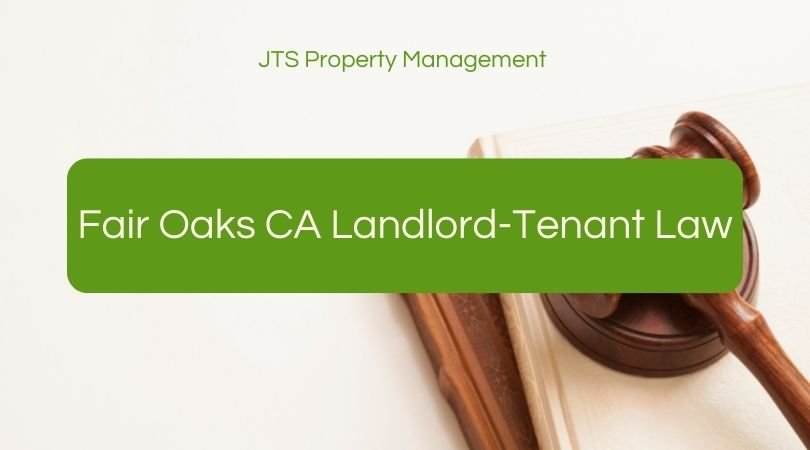In California, rental agreements can either be made between landlords and renters through an oral or written agreement. Once made, both the landlord and renter acquire certain rights and responsibilities as per landlord tenant laws in California, or (CA Civil Code 1940-1954.05).
As California landlords, it’s important to familiarize yourself with this legislation in order to run a successful rental investment business. The following is a basic overview of California landlord tenant laws and how they help uphold landlord-tenant relationships.
California Tenant Rights and Responsibilities
When a landlord and renter sign a lease agreement form, they enter into an agreement about what rights and responsibilities they have. According to additional tenant protections in California law, tenants have the right to:
- Live in peaceful and quiet enjoyment.
- Live in a habitable rental unit.
- Be treated fairly without any prejudice on the basis of certain protected classes under state and local laws.
- Have repairs done within 30 days (or sooner for urgent or emergency issues) after notifying the landlord or repair and deduct.
- Break the rental agreement without penalty under certain legally acceptable conditions.
- Withhold rent payments due to lease violation from the landlord.
- Due process for eviction if their eviction is necessary, and dispute eviction notices if it's not.
- Have their security deposit handled in accordance with (CA Civil Code §1950.5).
- Be provided certain disclosures through verbal or written notice.
In addition to their rights, tenants in California have the following list of responsibilities. A California tenant must:
- Keep their rental unit in a clean and sanitary state.
- Pay rent as per the terms specified in the rental agreement.
- Use all the provided fixtures and appliances for their intended purpose.
- Fix any damages that they cause.
- Handle minor repairs and maintenance tasks.
- Not disturb other tenants or neighbors.

Landlord Rights and Responsibilities
California rights for landlords include:
- Enter a tenant’s rented unit to perform certain obligations.
- Evict tenants who violate terms of the lease agreement, such as unpaid rent, for example.
- Not renew the lease of a renter after the existing one ends.
- Draft a rental agreement.
- Screen prospective tenants prior to allowing them to move in.
- Enforce the terms of the rental agreement and request late fees for rent.
- Request a security deposit up to two month's rent in case of damages to the rental property. Landlords do not have to pay interest on a tenant's security deposit.
- Raise rent in accordance with statewide rent control laws (AB 1482).
In addition to their rights, California landlords are also required to fulfill certain responsibilities. A landlord's responsibilities include the following:
- Provide a habitable rental dwelling.
- Respond to repair requests within a reasonable period of time.
- Provide an eviction notice a renter before evicting through a judicial eviction process that isn’t a retaliatory act or based on discrimination, as outlined in the Fair Housing Act.
- Abide by the state’s security deposit laws.
- Abide by the state’s rent control provision.
- Treat all tenants fairly and equally.
- Give tenants 24 hours advance written notice before entering a tenant’s rented unit for legally acceptable reasons, except in rare cases of emergency.
- Work to resolve any landlord tenant issues that arise as soon as possible.
Landlords are not responsible for a renter's personal property.
Required Landlord Disclosures
Landlords are required to give reasonable notice and make certain disclosures to tenants. If the disclosures are not made, tenants made have the right to withhold rent. Landlords must provide disclosures for the following scenarios:

- Any lead-based paint in any rental unit built prior to 1978.
- Provide written information regarding bed bugs using certain language as required by law.
- Documentation on any known mold.
- Any future plans to demolish the property that may affect tenancy.
- Access to information regarding specified registered sex offenders.
- Disclosure on whether the property has ever been used to manufacture methamphetamine.
- Disclosure on any knowledge of the use of asbestos.
- Disclosure on whether the property is located in a known flood zone.
- Information about a death in the unit within the last three years if the death was not HIV/AIDS-related.
Overview of the Landlord Tenant Law in California
Habitability
Landlords must provide their California tenants with housing that meets the basic habitability codes. This responsibility for landlords is primarily governed by CA Civil Code § 1941.2. The following are some items that fall under a landlord's responsibility:
- Provide a functioning HVAC equipment.
- Ensure proper waterproofing of the walls, roof, etc.
- Provide a working gas line.
- Provide working sanitation facilities.
- Ensure smoke detectors are working as they should.
- Provide hot and cold running water.
- Provide floors, stairs and railings that are safe and in good condition.
As already mentioned, landlords have a maximum of 30 days (or sooner for urgent issues) to respond to repair or maintenance issues. If they don’t, the tenant may be left with no other option but to exercise their legal right.

Legal options include withholding rent, suing the landlord, and reporting landlords to a relevant government agency. Tenants can also use the repair and deduct remedy to fix it themselves and deduct the cost from future rent payments if the landlord refuses to complete repairs or if the damage impacts the health and safety of the renters. The repair and deduct remedy protects tenants from their living space being neglected by the landlord.
California Eviction
In California, landlords are able to remove renters for violating a term of the lease. Common violations include:
- Rent not being paid.
- Damage exceeding normal wear and tear.
- Failure by a tenant to move out after the end of the lease term.
Other violations include engaging in criminal acitivity and failing to comply to rental policies.
California Security Deposits
Do you require tenants to pay security deposits prior to renting your California home? If you do, then you must abide by the statewide California security deposit law (CA Civil Code §1950.5). Listed below are some of the rules that landlords must follow according to this California law:
- Limit: Landlords may not charge tenants no more than the equivalent of two months’ rent for the security deposit (three month's rent if the space is fully furnished).
- Security Deposit Refunds: Landlords must return the deposit, minus any allowable deductions, within a period of 21 days.
- Deductions: Landlords can only make reasonable deductions.
There are penalties for wrongfully withholding tenant' security deposits. Terms of what constitute allowable reasons to make deductions to the security deposit should be clearly communicated to the tenant.

California Lease Termination
California tenants can legally break their lease early under certain scenarios. Some of the scenarios include the following:
- The tenant is starting active military service.
- The landlord fails to respond to maintenance issues and the premises becomes uninhabitable.
- The lease contains an early termination clause.
- The landlord is harassing the tenant.
In all these cases, a tenant must follow a specified procedure as stated in California landlord tenant laws in order to move out.
Rent Increases
California has a rent increase law in place for landlords. The statewide rules are outlined under AB 1482 of the Tenant Protection Act. The rent control ordinances cap rental increases on the basis of inflation. Different jurisdictions have different local ordinances regarding rent control.
Fair Housing Laws in California
California landlords cannot deny a prospective tenant based on their race, color, religion, sex, familial status, nationality, and disability. It is part of the landlord responsibilities to avoid illegal discrimination based on protected classes including citizenship status, ancestry, gender identity, marital status, sexual orientation, income source, and primary language.
In Conclusion
If you’re a California landlord who would like help navigating the management of your rental units, contact us today. We make it easy for your California tenant to pay rent and easy for you to get a high ROI on your rental properties. We have an expert team of professional property managers who can help landlords maximize their income and achieve peace of mind.
Disclaimer: This blog isn’t a substitute for professional legal advice from a qualified attorney. Rental laws in California can change and this information may not have been updated at the time you’re reading it. Contact a licensed attorney or landlord tenant lawyer for legitimate legal advice.


